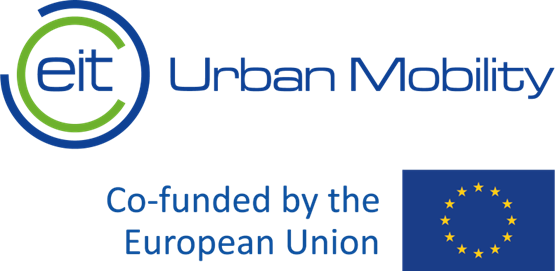Last year, Europe narrowed its mobility funding gap with the US with investment totalling an estimated $9bn, compared to the US’ $10bn.
There are many reasons for this, including the switch to electric, developments in batteries and an increased interest in carbon tracking and offset startups. But Fredrik Hånell, the director of impact ventures at EIT Urban Mobility, the most prolific investor in mobility startups in the EU, points to regulation.
“One of the driving forces is what people typically think of as something horrible — regulations,” says Hånell. “Involvement of the cities and governments is helping point innovations into the right direction.”
The US is often touted as a place where agile mobility startups can set up and start straight away. But Hånell argues the EU’s more standardised approach makes it easier to see the long-term direction transport is headed in — and where the biggest opportunities lie.
“There are a lot of efforts going on to standardise and regulate, from EU level but also from cities themselves,” says Hånell. “In some cases, even the startups and the mobility providers are contributing and proposing regulation themselves. It must feel backwards if you’re looking at it from a US perspective where it’s better to do first and ask later.”

Last year, EIT Urban Mobility invested in 62 seed stage mobility companies. In second place was public investment bank Bpifrance with 22 deals, followed by the European Innovation Council (EIC) with 14.
Since it launched four years ago, EIT Urban Mobility has invested in 127 European mobility startups.
Still, funding challenges remain, with 2023’s total deal values down 26% year-on-year overall according to Dealroom’s 2023 State of European Mobility Startup Report.
But looking at where this smaller pool of money is going reveals some interesting trends.
Companies working on EV battery and charging solutions saw funding levels remain stable, indicating a drop in interest in other business models. Among those, marketplace businesses — such as those that operate bike-sharing schemes or ride-hailing services — have seen their share of funding (excluding EV charging and battery companies) drop from a peak of 74% in 2014 to just 24% in 2023.
The tech we see as very promising is tech that changes people’s mobility behaviour.
“It’s no secret that ebike operators [and others] ran into trouble and in some cases excessive valuations,” says Hånell, adding that negative public perception and limiting regulations worked against these companies. In January, investor VNV Global revealed it had revised the value of its stake in Swedish scooter company Voi down from $226m to $84m.
However, Hånell remains bullish. “Undoubtedly, there is a development towards reducing the number of cars in cities,” he says. “The tech we see as very promising is tech that changes people’s mobility behaviour.”
The ones to watch
Here are four startups from EIT Urban Mobility’s portfolio that it thinks are worth paying attention to.
Nudgd
Swedish SaaS startup Nudgd creates platforms that ‘nudge’ users towards better choices — like taking more environmentally-friendly modes of transport.
“Nudgd did a pilot with a city here in Sweden and they did in fact change people’s mobility behaviour, and more than they were expecting,” Hånell says.
A 2023 pilot targeting workers in the town of Visby showed that Nudgd’s Smart Travel Habits platform resulted in a 14% reduction in car usage — beating the startup’s target of a 10% change.
Founder: Katharina Paoli Brunat.
Founded: Sweden, 2018.
Backed by EIT Urban Mobility: 2021.
PANTOhealth
Predictive maintenance startup PANTOhealth helps keep trains running. Its digital overhead line maintenance solution identifies faults using AI, resulting in fewer service disruptions. The company crunches data from sensors on trains and railway infrastructure to do this, whereas traditional inspection methods largely rely on time consuming in-person inspections.
The railway market presents a complex landscape, with varying regulations and market dynamics in each country.
“This reliance on manual methods was due in part to the industry’s cautious approach to adopting new technologies,” founder Mina Kolagar explains. “This not only reduces the time spent on problem identification, but also enhances reliability in rail infrastructure.”
The company is growing fast, having increased headcount by 50% last year and with ongoing projects in different countries.
“The railway market presents a complex landscape, with varying regulations and market dynamics in each country,” Kolagar adds. “This poses a significant risk for a young startup aiming to target the global market. To address this challenge, we have strategically onboarded industry-related angel investors who are actively supporting us in entering 10 different countries.”
Founders: Mina Kolagar, Amir Bashari and Farzad Vesali.
Founded: Germany, 2020.
Backed by EIT Urban Mobility: 2022.
ProperGate
ProperGate is a startup based in Poland that helps construction firms manage the complex web of suppliers and subcontractors that are involved in their projects, so that materials can be delivered to sites in a timely and efficient manner.
“It sounds like a niche, but the whole building industry is a huge source of emissions,” says Hånell. Construction is a familiar sight all across the EU — and the industry is estimated to generate 250m tonnes of CO2 per year.
Founders: Rafał Grudzień, Anna Walkowska and Robert Grudzień.
Founded: Poland, 2018.
Backed by EIT Urban Mobility: 2022.
Circu Li-ion
Battery recycling startup Circu Li-ion raised €8.5m in funding in October 2023, which it will use to build out its battery recycling solution and hire a further 34 employees. The company uses an automated process to disassemble old batteries from micromobility and electric vehicles, so the cells inside can be assessed.
This allows the batteries to be upcycled instead of recycled — meaning less energy is used in the process of getting these batteries back into circulation. The company’s goal is to upcycle 3bn batteries by 2035.
Founders: Antoine Welter and Xavier Kohll.
Founded: Luxembourg, 2021.
Backed by EIT Urban Mobility: 2022.
If you'd like to receive investment from EIT Urban Mobility click here.




